The Rise in Supper Clubs, Run Clubs, Books Clubs and everything but Nightclubs
In-person connections are in online connections are out
The algorithmification of our lives is pushing social media back to its roots: a tool to fostering connections.
Supper Clubs are not Dinner Parties
I've noticed people using the terms 'supper club' and 'dinner party' interchangeably, but they're not the same. A supper club involves organizing regular gatherings with a group of friends. In my 2024 predictions, I anticipated that supper clubs would become more popular in cities like Lagos. Many of my conversations with peers revolved around the sociopolitical situation in Nigeria and the lack of third spaces. While I didn't predict the significant economic downturn of the past eight months, it has further limited the affordable options available to young people as prices have soared and incomes have remained low.
Last week, a friend of mine launched her supper club, "My Friends House”, a no frills space to connect with people but feels like you’re just going over to your friends house for the evening. This came about after discussions about the lack of affordable third spaces for young people in Lagos. The city desperately needs a place where people under 40 can work, eat, play sports, attend workshops, etc., without breaking the bank. Most existing spaces are too expensive or dominated by older men and their sugar babies. Since we agreed that most of us couldn't afford to build or remodel a permanent space, we suggested a pop-up style. We hope that the community will eventually grow to support a permanent space and remember, a community isn't just a building; it's a feeling.
Supper clubs are typically designed to bring together diverse people, unlike book clubs or running clubs that focus on connecting like-minded individuals. These gatherings offer a more elevated dining experience in a safe and welcoming environment. They appeal to people who appreciate food and cooking but don't necessarily want the formality of fine dining or dress-code restaurants. The food is served family-style, there are name tags, unique settings, guided discussions, and ample time for participants to make new connections, learn new things, and feel part of something larger than themselves for a few hours each week, month, or year.
The internet has transformed into one vast digital marketplace, turning many of two buckets: creators or consumers. As a result, more and more people are closing their social media and dating app accounts and seeking a slower pace of life. What began as a tool for connection has quickly become a major source of division, loneliness, and disconnection from our surroundings. As people increasingly put down their phones, they are turning to in-person interactions.
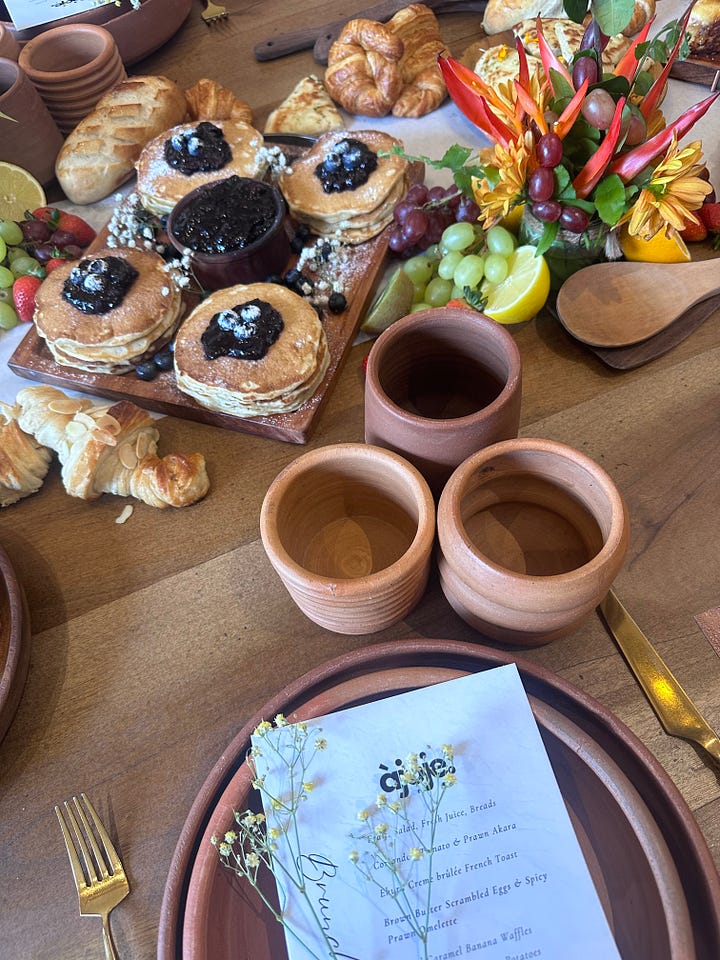
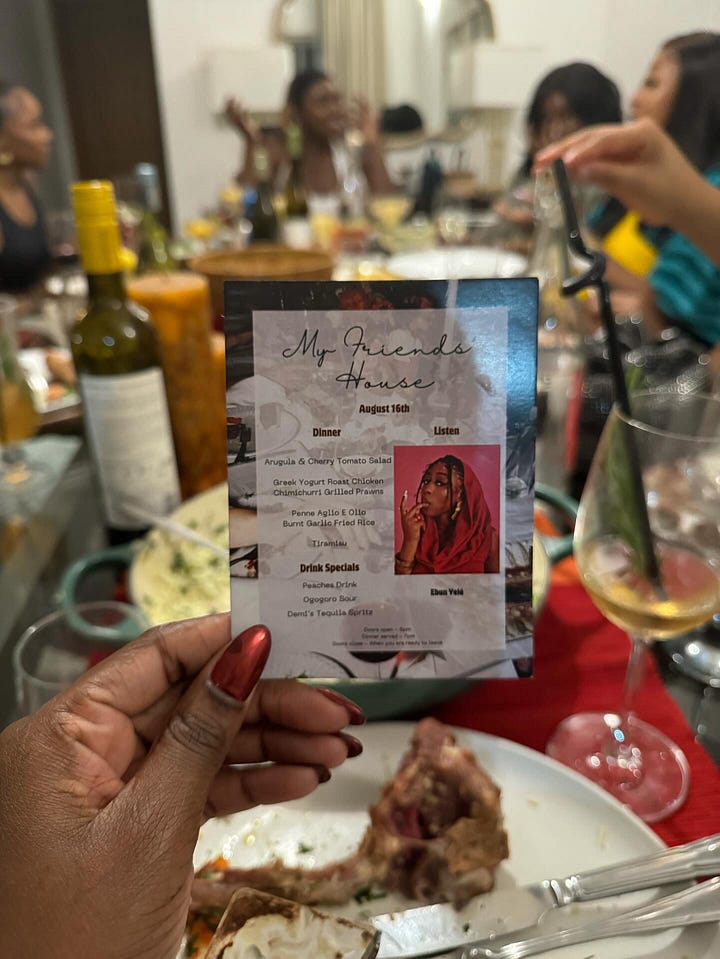
Book Clubs and Safe Spaces for Women
I started my book club at the beginning of the 2020 pandemic. I've always been a big reader, but I kind of fell out of it during college. I got back into it after college and kept it up when I moved back home. In April 2020, just three of us started the book club to hang out virtually during the pandemic. It started small, but now we have over a thousand followers on Instagram and over fifty real-life connections. For many of us, especially women, it's been a vital support system. We choose one book a month and meet regularly on Sundays, breaking down the book by chapter to get into it.
Since then, book clubs have become increasingly popular worldwide, especially among women and Gen Z, who have grown up with the internet and are struggling with loneliness more than previous generations. When people ask why I read and why I continue with the book club, I always answer that reading exercises your empathy muscles. In today's digital, individualistic, and capitalist world, it's easy to get caught up in the negativity and fear that the internet thrives on. But when you read, you step away from yourself for a moment and enter another world, another person's shoes. It reminds you of the vastness of the world, the endless possibilities, and that you're not alone.
In Nigeria, I've come to realize that reading and participating in women's book clubs is a form of quiet resistance in a society that is often anti-intellectual and anti-women. This isn't new. If you look at the history of book clubs, you'll see that similar societal conditions, such as women being excluded from education and relegated to the home, led to the creation of women's clubs as a way to bridge the gap and laid the groundwork for women’s rights movements.
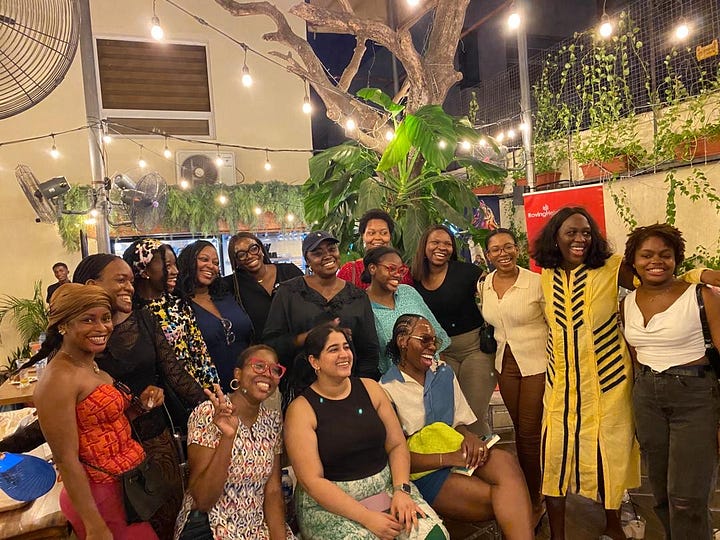
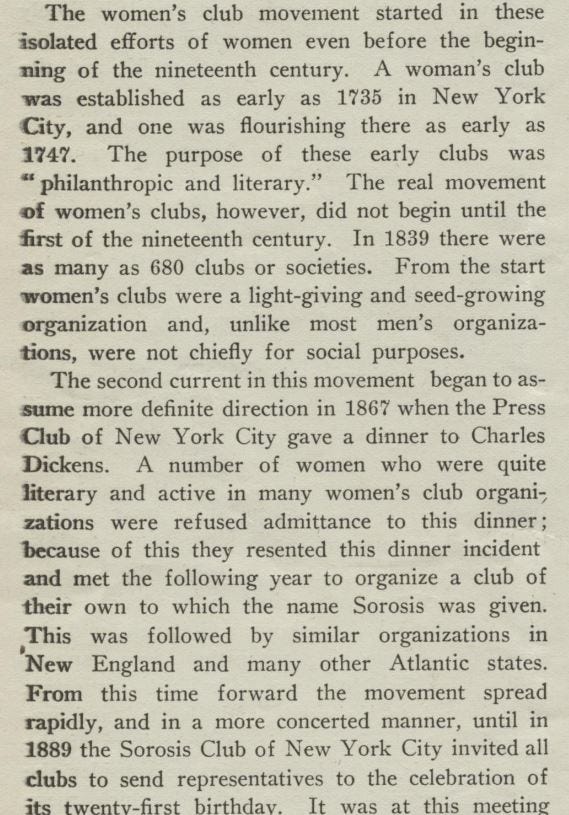
Run clubs or dating clubs?
Like book clubs, running clubs have seen a significant increase in popularity since the pandemic. As people seek to improve their physical and mental health, more people have taken up running. There's been a particular surge among young women, perhaps influenced by the pandemic or the growing trend of sharing fitness and wellness journeys online.
Some people on TikTok have made jokes about this, (which is so typical that any space dominated by women must instantly be deemed frivolous under the rules of patriarchy) claiming that women are joining running clubs as a way to meet men due to the fatigue of online dating. However, the underlying theme here is loneliness and the desire for real-life connections, which have become increasingly difficult to find in the age of social media and the pandemic.
While I don't have specific statistics for Nigeria, I know many people who run, but it's mostly a solitary activity. In a city like Lagos, it's understandable why people might hesitate to form or join group runs, as they can attract unwanted attention and require extra security. Even the cycling clubs that take place between the island and the mainland every Saturday require significant planning and security. Also Running in groups throughout Lagos neighborhoods isn't the most practical thing due to many roads being unsuitable for pedestrians and runners. Sidewalks are often occupied by vendors or riddled with potholes. Perhaps quieter cities in Nigeria with better urban planning could facilitate group running activities
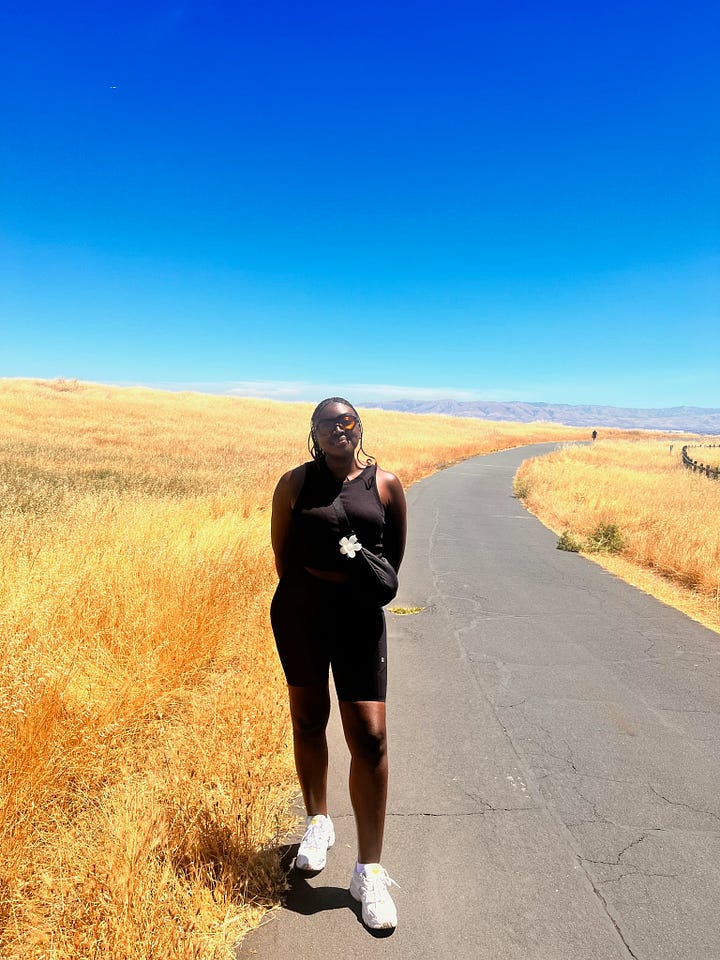
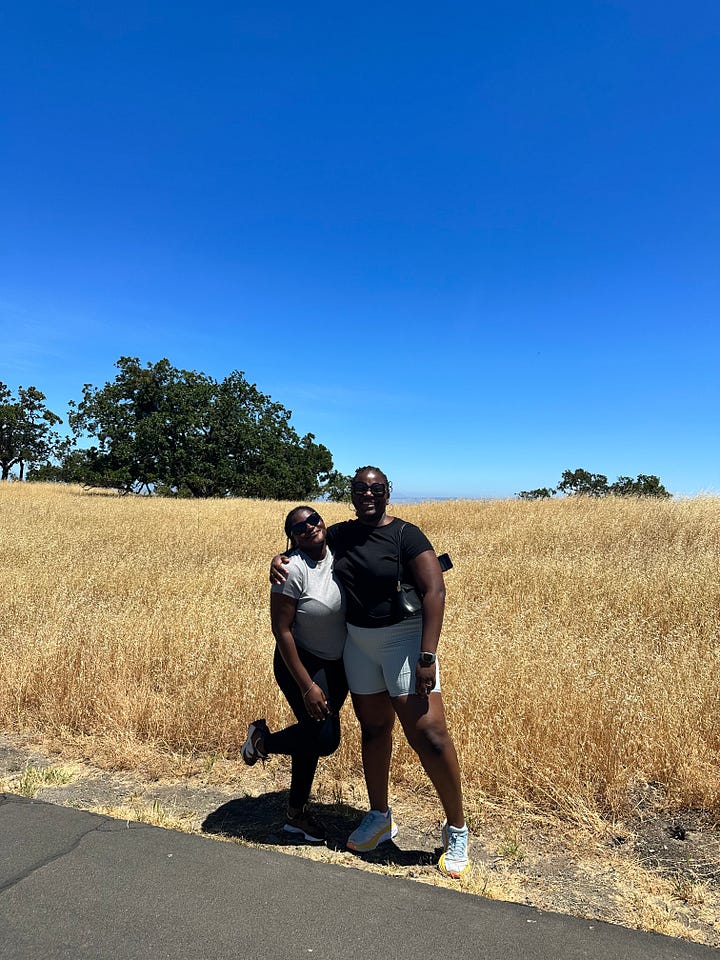
What Next?
In the context of Nigeria, I'm particularly excited about the rise of all these clubs. They signal a new generation that is eager to revive the sense of community that our forefathers thrived on before colonization. Another question I'm frequently asked is what I think the problem with Nigeria is. Often, I quote Achebe's concise line about leadership. But at other times, I simplify it by saying, "The problem with Nigeria is that it has abandoned community for individualism, ensuring that the barely cobbled-together country can never become a whole." Throughout history, our one advantage over other animals has been our ability to come together towards a goal. Somewhere along the way, we commodified "divide and rule," watering it down from conquering nations to conquering the minds of young children in their bedrooms with smartphones.
These clubs can form the foundation for impactful communities. Book clubs can evolve from reading fiction into building community libraries for disadvantaged children. Run clubs can identify and support local sports centers, potentially nurturing future Olympic champions. Supper clubs can become food banks, feeding thousands or providing meals to children in need. A few clubs can grow into hundreds or thousands, enriching individual lives and communities. As my brother reminds me, focus on your own space before trying to change the world. As more young people prioritize in-person connections, the possibilities are endless.
Before I go, I want to acknowledge that some of these clubs still succumb to capitalism (charging $50 for a supper club, promoting the latest Hoka running shoes, or encouraging people to buy ten books at once). However, I don't believe this detracts from what people are seeking. Until someone offers a viable alternative to capitalism, I'm not interested in just adding to the endless complaints.
Let me know what you think in the comments! Are you keen on these clubs? Are you interested in starting one?


